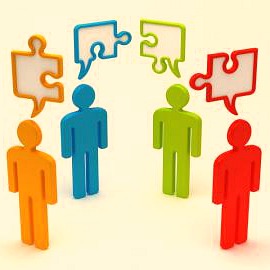Over my career, I have had the opportunity to experience many decisions being made, a nice way to say I’m getting old. I have seen good ones and bad ones and I have made good ones and bad ones. Ultimately, over 90% of the value any person is to any organization is directly related to their decision-making ability. Any decision is, at its core, a risk assessment. You must assess two or more potential directions and then choose the best one. There are always pros and cons to those directions. Making a decision may seem easy enough, but there are many skills and factors that are part of that process.
Emotional Strength
There are several personal skills necessary for good decision making. By far the most important quality and the one that is the hardest to find in people is having the emotional strength to do it. The biggest issue I have seen that holds most people back in their respective career is having the emotional strength to shoulder the responsibility for a decision as the risk increases. In other words, as the emotional or financial risks increase many people shy away from making a decision. It is one thing to decide whether to go left or right at a stop sign, it is completely different to decide if a person is in the right job or if you should spend a million dollars with no guarantee of success and 100 people’s income is affected by that decision. So many people either don’t want that burden or the stress of that burden is too much for them to handle.
Understanding Data
Having the ability to understand all the information involved in a decision is another skill that is necessary to make good decisions. Information comes in many forms. For example, there is empirical data, concepts, emotions, and situational considerations to name a few. Typically, people have their strengths and weaknesses depending on the type of information that they are assessing. I do not understand quantum physics and for me to understand it, I would have to spend so much time learning it that it would not be worthwhile. To put yourself in the best situation to make good decisions you should honestly assess yourself and seek input when you are dealing with information that is difficult for you. One of the best businessmen I know has a tough time understanding the emotional impacts his decisions have on his team. He knows that about himself and does a tremendous job seeking input from other people that understand those impacts better than he does. From a big picture perspective directing your career so you are dealing with information that you know well helps you be a more effective decision maker. However, no matter what career field you chose, you should always continue to learn and improve on your strengths and weaknesses, so you can make more effective decisions.
Filtering Data
Once you understand the information, you need to be able to filter the information. If you struggle to filter what is important to the decision at hand, that information is useless. In almost every scenario, regardless of how risky the decision, there are 2 or 3 main factors that will determine the outcome of that decision. Too many times people are overwhelmed with the amount of data they must synthesize. You must be able to identify the most important factors and eliminate everything else. The inability to weed out all the noise will paralyze a person’s ability to decide.
Timeframes
Another criterion for effective decision making is being able to decide in a productive time frame. If it takes you 5 years to make a decision, you will not make many of them over your lifetime. There is an efficient period to make any decision. The riskier the decision, the longer it usually takes, but there is a limit. You have heard the term “paralysis of analysis”. Time is money and taking too much time to make decisions costs money. On the other side of the coin, you can make decisions too fast. In that case, you do not give yourself enough time to consider all the options. Sometimes people are so focused on getting another item off their “To do” list that the driving force to make the decision is that instead of the driving force being to make a good decision.
Culture & Personalities
There are also decision-making considerations that have nothing to do with you. They are external. Things like the culture of the organization that you are working in, the constituents that are judging your decisions, and the process.
Every organization has a culture that is unique. No matter what decision-making skills you have, you must consider the culture of that organization for your decisions to succeed. Some organizations will not accept a decision if it is made too quickly. Others look at the speed of a decision as being the most critical factor for success. If you work at a fire station, quick decisions are very important, while quick decisions in a pharmaceutical company are not. Be aware of the decision-making culture in your environment to give your decisions the best chance for success and in turn giving your career the best chance to progress.
Just like organizations have different cultures, people have different behavior types. Very few decisions are made that do not impact other people, the people you report to, your peers, the people that report to you, family members, friends, basically your constituents. The success of your decisions will be directly influenced by the people impacted. You must consider your constituents as a direction is chosen. How will they react? What actions will they take? How will this affect them emotionally? Your constituents will judge your decisions and your long-term success will depend on those judgments.
Have you ever heard the phrase, “there is a right way and a wrong way to do something?” That is true in the decision-making process as well. Your decision-making process can make or break your decisions. As I explained above, organizations have a culture and people have different behavior types. If those entities inherently respect the process you use to make a decision, your decisions will be more successful and your value to the organization will increase.
Decision Evaluation
Finally, don’t spend time regretting or gloating over a past decision. That is not productive, but assessing a decision with the intent to learn is. Set a realistic assessment time in the future and do a postmortem review to evaluate how the decision was made, was the outcome good or bad, should you continue in the chosen direction, and what would you have done differently if you had to do it again. The intent is not to beat yourself up or pat yourself on the back. At the time a direction is chosen, do everything you can to make the chosen direction work. Every bad decision I have made has helped me make better decisions in the future. Bad decisions are opportunities to learn and if that is your mindset, you will get better at decision making, and in turn, help advance your career. At the end of the day (my kids love it when I use that phrase) you must understand the information, filter out what is critical to the decision, assess the risk, and understand your constituency. There are tools you can use to improve your decision-making abilities, but for now, work on one thing; developing the internal fortitude necessary to shoulder the responsibility of making a decision and then “JUST MAKE THE DECISION” Good luck.
Learn More
For more than 50 years, CGR Products has been a leading supplier of reliable, high-quality products. To read more from CGR Products, visit our Blogs page or feel free to click around on our website.



